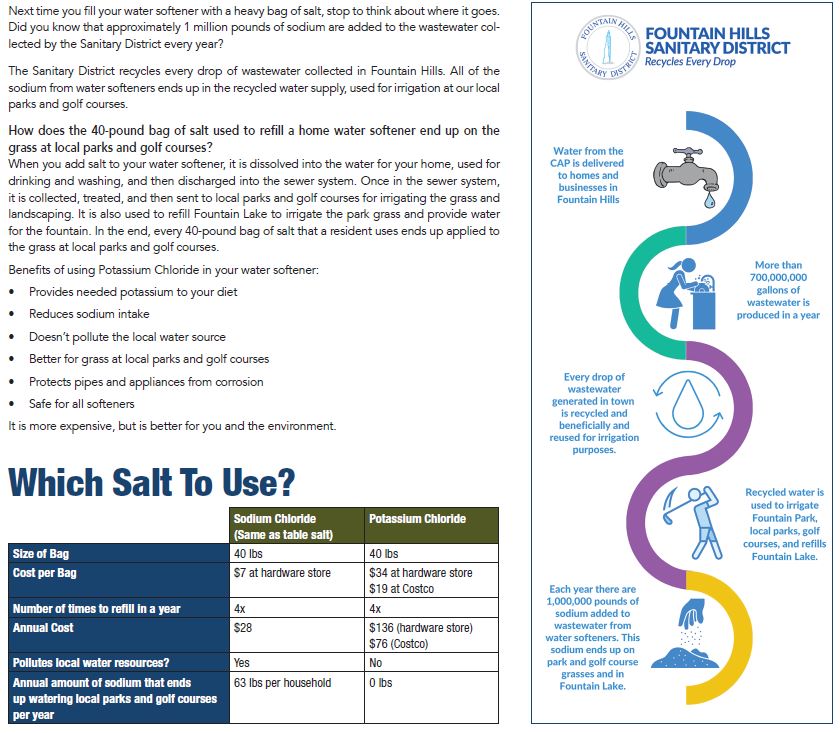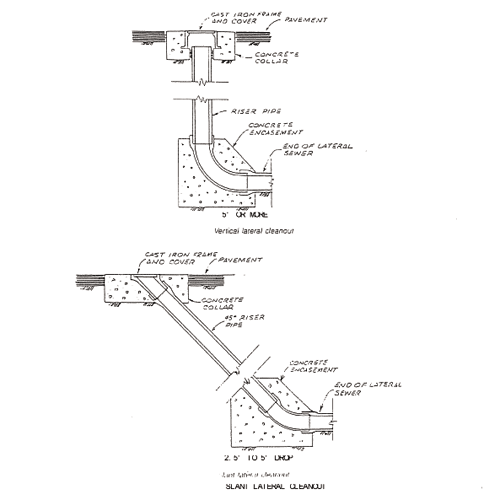Customer Service
Odors, Backups, Roaches
Please report to us any problems you may be having with sewer odors, backups or roaches. We’ll respond to you ASAP with follow-up actions. Thank you!
Odors
![]() A sewer odor wafting through the home can be very annoying and may mean something is wrong with the plumbing. In some cases, a sewer odor can be found just outside one’s home. If the smell is constantly present, it may be from the roof vent pipe or storm drains outside.
A sewer odor wafting through the home can be very annoying and may mean something is wrong with the plumbing. In some cases, a sewer odor can be found just outside one’s home. If the smell is constantly present, it may be from the roof vent pipe or storm drains outside.
Diagnosing the source of an invisible sewer odor can definitely be a challenge. Knowing where to look is the first step to identifying the origin of the odor as quickly as possible.
- Worn Wax Ring – The wax ring underneath a toilet may be worn and providing an air gap for the stinky smell to come up from the sewer drain pipe.
- Low Water Level in P-trap – Sometimes the water level of the drain will drop, thereby eliminating the barrier that is keeping the odor in the drain, allowing the odor to surface instead.
- Pipe Defects – There is an extensive network of plumbing and vent pipes in the floors, walls, and attic spaces of each building to maintain proper sanitation and ventilation. There may be a crack or leak in any of those pipes, which can allow sewer odors into the home. Unfortunately, only a licensed plumbing can identify those defects and repairs may be needed behind the walls.
- Vent Pipes – A home’s sewer ventilation system is usually found on the roof. Vent pipes can get blocked with debris, trapping sewer odors inside. Please check that the vent pipes are clear from obstructions or have a licensed plumber do so.
- Clean Outs – Most sewer services have a clean out, to access the drain lines serving your property. Clean outs should have a removable cap installed, to contain odors. Please ensure the clean is properly capped.
- Drain Capping – Redundant drains need to be capped (sealed off) so that they do not allow the odor to escape from the network of pipes.
If you smell sewer odors in your home, please call a Licensed Professional Plumber first to locate the source of the sewer odor. If the odor is not coming from the vents or drains, then you may call the Sanitary District. We will inspect the main sewer line serving your property.
Backups
![]() Maintenance and care of the sanitary sewer service line from the home is the responsibility of the homeowner. Therefore, it is important for homeowners to understand the steps they can take to help prevent sewer backups, as well as what to do if a backup does occur.
Maintenance and care of the sanitary sewer service line from the home is the responsibility of the homeowner. Therefore, it is important for homeowners to understand the steps they can take to help prevent sewer backups, as well as what to do if a backup does occur.
- Tree Roots – Roots from trees and large shrubs are responsible for many of the sewer service backups and damaged sewer pipes that our customers experience. Before planting, know where your sewer line is. It recommended to keep trees and plants at least ten feet away from your sewer line.
- Easements – Some properties contain public utility easements and rights-of-way should remain free of trees, shrubbery, fencing, pools, or permanent structures, such as sheds. These easements provide necessary access to the Sanitary District when a sewer line or a manhole need servicing.
- Clogged Drains – Grease, paper products, hygiene products, toys, etc.….will backup a sewer pipe quickly. The only product that should be flushed is toilet paper.
If a backup does occur, first call a Licensed Professional Plumber to clear any internal drain lines and to clear the private sewer line from the home to the property line. Once the private sewer line is cleared of all roots, grease, and debris, then the sewer lines should drain as normal. This should be done BEFORE contacting the Sanitary District to investigate the issue.
If the Licensed Professional Plumber determines the sewer line is broken or collapsed in the public right-of-way or District’s easement, then call the Sanitary District at 480-837-9444 -24/7. If the defect is found to be on private property, the property owner must make the repairs. If the defect is located in the public right-of-way or District’s easement, the Sanitary District will repair the line in accordance with the District’s ordinances.
Never use the drains as a trash can. Flushing or disposing of the wrong items can damage the sewer system, cause sewer backups, and cause sewer overflows.
Roaches
![]() In order to effectively control roaches, residents must do their part to help as well. Roaches are highly adaptable and have developed a resistance to some insecticides over the years because the surviving insects breed and produce resistant offspring. Roaches prefer warm climates and are less adaptable to cold weather. When we have a cold winter, roaches are less abundant the following summer. A mild winter generally produces a larger number of sightings the following summer.
In order to effectively control roaches, residents must do their part to help as well. Roaches are highly adaptable and have developed a resistance to some insecticides over the years because the surviving insects breed and produce resistant offspring. Roaches prefer warm climates and are less adaptable to cold weather. When we have a cold winter, roaches are less abundant the following summer. A mild winter generally produces a larger number of sightings the following summer.
Contrary to popular belief, roaches do not swim up sewer drains. The water in your drain trap can evaporate, allowing roaches to climb up the drain. Once in a home, they head straight to a water source. Upon entering a sink or tub, they are often spotted going in and out of the drain for water. Drains should be covered when not in use. Run water in unused drains at least once a month.
In Arizona, many roaches live in the landscaped areas, plants and shrubbery. Homeowners must take an initiative to treat their own property to control the roach population. If you notice a lot of roaches near a sewer manhole near your property, you may report the problem by phone or through our website. The Sanitary District can treat for roaches near the manhole, but not on private property.
Important Reminders
- Make sure your cleanouts are visible outside your building foundation and are properly capped.
- A check valve is required by Plumbing Code if your foundation elevation is lower than the upstream manhole.
- All drain traps should have water poured in them once a month.
- Only use water or “Simple Green” when filling drain traps.
- DO NOT USE DRAINS AS A TRASH CAN. No dumping of paint, flammable cleaning products, motor oil, anti-freeze, or carpet cleaning products that contain dyes. Be environmentally friendly and only dump biodegradable materials.
- DO NOT FLUSH WIPES. Even if the package says it is flushable, baby or other types of wipes do not break down and can clog drains and sewer mains.
- When draining pool water into a sewer cleanout, PLEASE CALL THE DISTRICT FIRST at 480-837-9444.

16941 E. Pepperwood Circle
Fountain Hills, AZ 85268
Phone: 480-837-9444
Fax: 480-837-0819
Email Us


